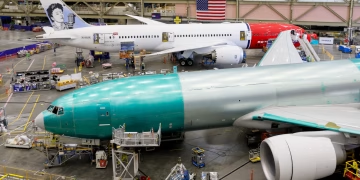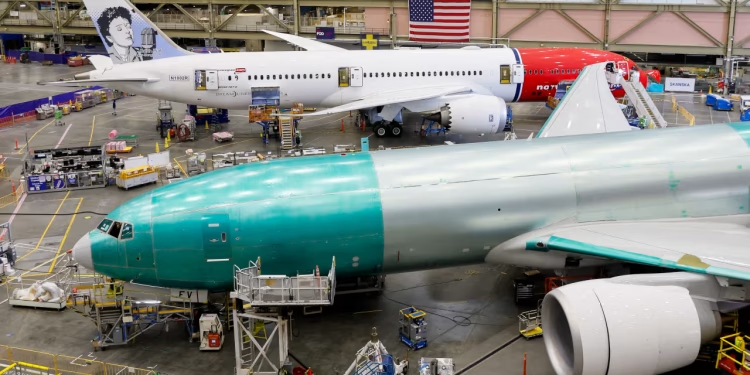By Eva Richardson | The Logistic News
April 16, 2025
In a bold retaliatory move that heightens already fraught economic tensions, China has instructed its state-owned and private airlines to halt all pending aircraft purchases from Boeing, the U.S.-based aerospace and defense giant. The directive follows President Donald Trump’s imposition of tariffs up to 145% on Chinese imports, which Beijing swiftly countered with a 125% tariff on U.S. products—including key aerospace components.
“This isn’t just tit-for-tat—it’s a seismic shift in aerospace diplomacy,” said Dr. Ming Zhao, a professor of trade policy at Peking University.
A Critical Blow for Boeing
For Boeing, the loss of one of its largest foreign markets couldn’t come at a worse time. The company had recently begun to recover from pandemic-era order deferrals and delivery bottlenecks, and was banking on a renewed surge in international fleet upgrades, particularly in Asia.
China represented roughly 20% of Boeing’s commercial aircraft deliveries over the last five years. The suspension of new orders and potential delays in existing contracts could cost the manufacturer billions in lost revenue and affect thousands of jobs across its supply chain.
“It’s not just about jets—it’s about engines, avionics, landing gear, and hundreds of U.S. suppliers that will feel the ripple effects,” said Carla Nguyen, an aerospace analyst at Franklin & Myers Capital.
Geopolitical Fallout Beyond the Runway
Beijing’s move is seen as a direct signal that aerospace—long considered a realm of technological cooperation—has now been drawn into the broader economic and geopolitical contest between the two superpowers. While Boeing’s European rival Airbus is likely to benefit from the void, aviation insiders caution that China’s long-term goal remains self-reliance via its domestic COMAC jet program.
Additionally, the halt threatens to disrupt ongoing cargo aircraft conversions, MRO partnerships, and collaborative aviation training programs between U.S. and Chinese entities.
Impact on Air Cargo and Logistics
The fallout isn’t confined to passenger aviation. Boeing freighters like the 747-8F and 777F form the backbone of global e-commerce and pharmaceutical logistics. With future deliveries in question, capacity planning for major freight operators may be disrupted, especially those operating trans-Pacific trade lanes.
Air cargo carriers are already signaling tightened long-haul capacity heading into Q3, especially as tariffs complicate both belly freight and dedicated freighter routing through China.
“Aircraft delivery schedules are the heartbeat of capacity planning in air logistics. Any disruption there sends tremors across the network,” said Laurent Meunier, Head of Global Freight Operations at SkyBridge Cargo.
Conclusion
With China freezing Boeing purchases and Washington doubling down on punitive tariffs, the world’s most strategically sensitive industry has been thrust into the frontlines of a trade war. For global aviation and logistics players alike, 2025 may become a defining year—not just for how planes fly, but for who gets to build them.
Eva Richardson is a senior correspondent at The Logistic News. She covers aerospace logistics, international trade policy, and the future of air cargo.























